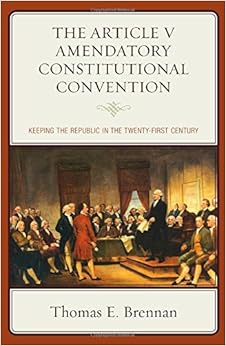The Brooklyn Law School Library February 2015 New Books List is out with 98 new titles in both print and e-book versions. The items cover a wide range of subjects including copyright law (Cultures of Copyright, Call #KF2996 .C85 2015), legal composition (How to Write Law Essays & Exams, Call #KD404 .S77 2014 and Putting Skills into Practice: Legal Problem Solving and Writing for New Lawyers, Call #KF250 .B375 2014), freedom of speech (Speech Matters: On Lying, Morality, and the Law, Call #BJ1421 .S554 2014 and Whistleblowers, Leaks, and the Media: The First Amendment and National Security, Call #KF3471 .W49 2014), and others.
 On the subject of what seems to be the nation’s broken politics and government, two books on the list are Too Weak to Govern: Majority Party Power and Appropriations in the U.S. Senate (Call #KF4987.A67 H36 2014) and The Article V Amendatory Constitutional Convention: Keeping the Republic in the Twenty-First Century (Call #KF4555 .B69 2014) by former Chief Justice of the Michigan Supreme Court Thomas E. Brennan, founder of the Thomas M. Cooley Law School and of Convention USA, a citizens’ initiative to promote an Article V convention. The latter book describes how a number of citizens groups are trying to get an Article V convention, coming to several conclusions:
On the subject of what seems to be the nation’s broken politics and government, two books on the list are Too Weak to Govern: Majority Party Power and Appropriations in the U.S. Senate (Call #KF4987.A67 H36 2014) and The Article V Amendatory Constitutional Convention: Keeping the Republic in the Twenty-First Century (Call #KF4555 .B69 2014) by former Chief Justice of the Michigan Supreme Court Thomas E. Brennan, founder of the Thomas M. Cooley Law School and of Convention USA, a citizens’ initiative to promote an Article V convention. The latter book describes how a number of citizens groups are trying to get an Article V convention, coming to several conclusions:
- Congress will never voluntarily call a convention no matter how many petitions are received, because a convention might propose amendments which would decrease the powers or prerogatives of Congress.
- States have the right to call an Article V convention without the concurrence of the Congress whenever two-thirds of the states wish to participate.
- Citizens of the several states have the constitutional right to organize a convention for proposing amendments, without the call of Congress or the approval of the state legislatures.
- No amendment proposed by a convention, of any kind, will become a part of the federal constitution unless it is ratified by three quarters of the states, as required by Article V.
On this subject, BLS Professor of Law Nelson Tebbe and former BLS Professor Frederic Bloom have written and posted on SSRN a paper called Countersupermajoritarianism. The abstract for the 24 page paper, due for publication in an upcoming edition of the Michigan Law Review, reads:
How should the Constitution change? In Originalism and the Good Constitution, John McGinnis and Michael Rappaport argue that it ought to change in only one way: through the formal mechanisms set out in the Constitution’s own Article V. This is so, they claim, because provisions adopted by supermajority vote are more likely to be substantively good. The original Constitution was ratified in just that way, they say, and subsequent changes should be implemented similarly. McGinnis and Rappaport also contend that this substantive goodness is preserved best by a mode of originalist interpretation.
In this Review, we press two main arguments. First, we contend that McGinnis and Rappaport’s core thesis sidesteps critical problems with elevated voting rules. We also explain how at a crucial point in the book — concerning Reconstruction — the authors trade their commitments to supermajoritarianism and formalism away. Second, we broaden the analysis and suggest that constitutional change can and should occur not just through formal amendment, but also by means of social movements, political mobilizations, media campaigns, legislative agendas, regulatory movement, and much more. Changing the Constitution has always been a variegated process that engages the citizenry through many institutions, by way of many voting thresholds, and using many modes of argument. And that variety helps to make the Constitution good.
